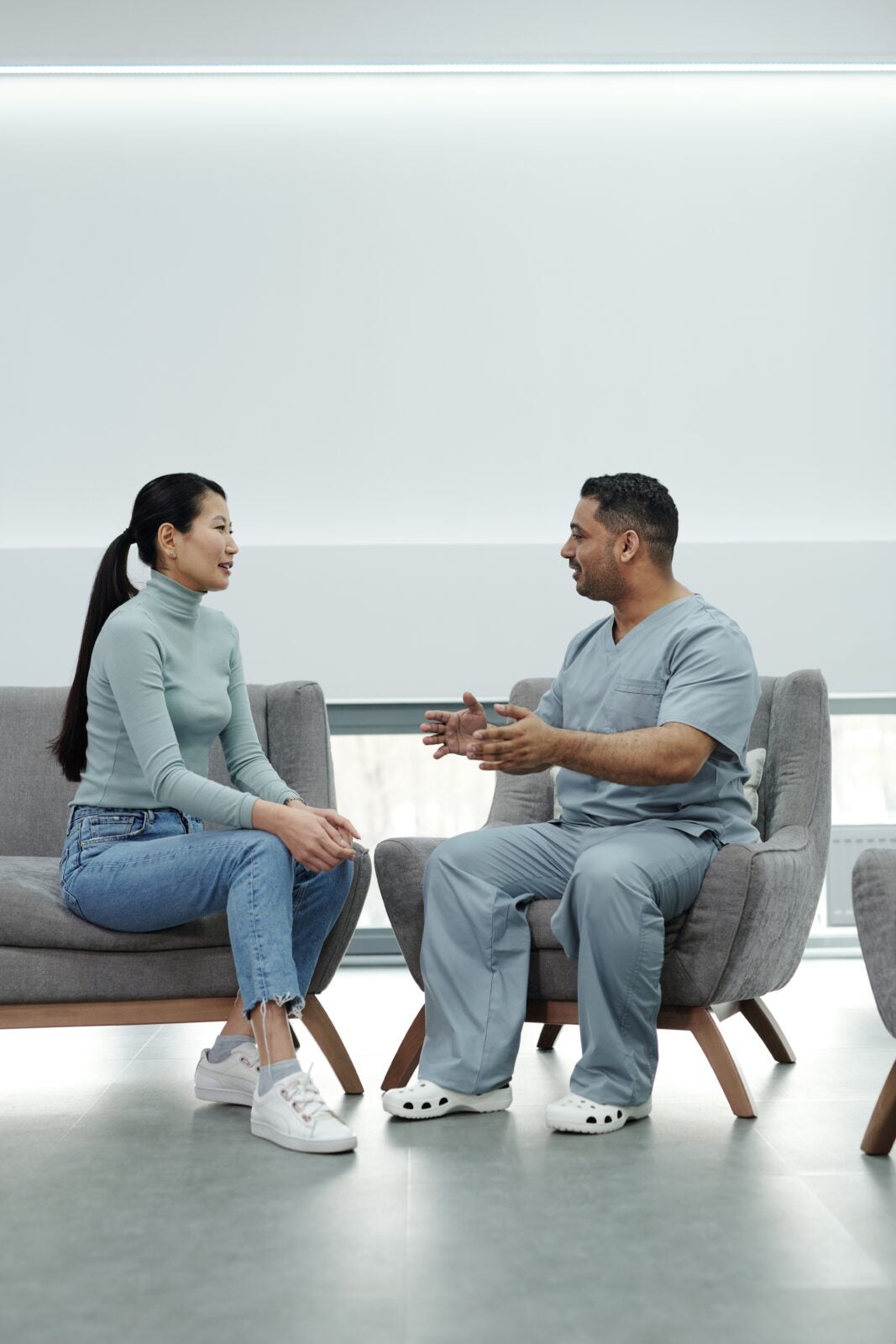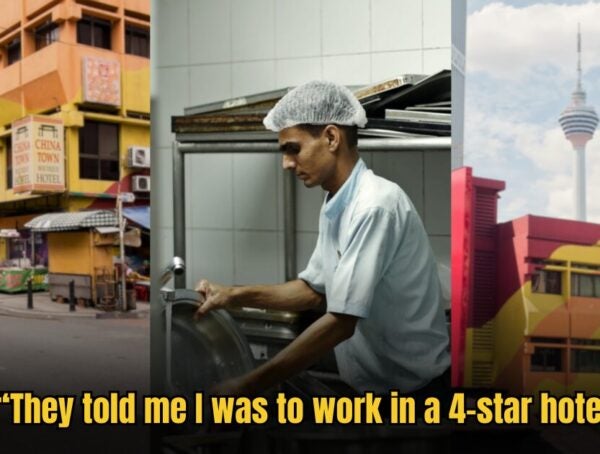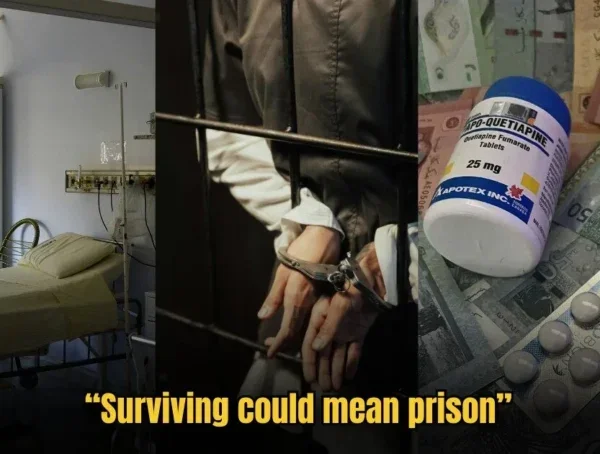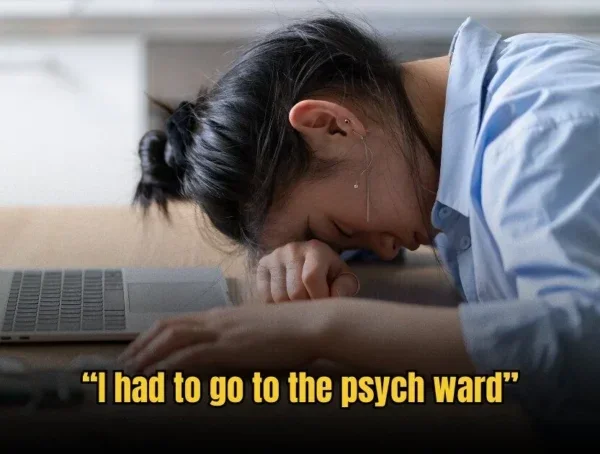After 13 Doctors and 3 Hospitals, I Found The Key To Healing My Depression

Disclaimer: In Real Life is a platform for everyday people to share their experiences and voices. All articles are personal stories and do not necessarily echo In Real Life’s sentiments.
When I first sought help, I hadn’t thought of it as a long-term commitment.
“The doctor would know what to do,” I thought.
All I had to do was to come to my appointments on time, eat my medications and I would simply heal.
Right? Wrong.
When it comes to mental illness, that’s not how healing works.
I started seeing symptoms as early as 13 years old. I had a tendency to be impulsive; I would self-harm and give myself random haircuts. Sometimes I would think about what it would feel like to be dead. Sometimes I would stay in my room, not speaking to anyone; I’d avoid food, starving myself for multiple days.
At the time, I didn’t think I was doing anything out of the ordinary for a teenager.
You know how the media portrays teenagers: Angsty, angry at the world, destructive? That was me. I was doing basically everything that screamed “attention seeking” — or so I thought.
Now as an adult looking back, it was obvious; I was self-harming, had suicide ideation, was self-isolating, and had developed an eating disorder. But since I didn’t take my own symptoms seriously, I stuck with my destructive coping mechanisms and never asked for help from a counsellor.
When I turned 19, I was in the final year of my diploma, and ever closer to starting my working life.
The thought of networking as an adult terrified me. I had social anxiety; I could not order my own food and I hated talking to new people. I struggled to find any reason to keep living, and it wasn’t helping that I kept myself isolated still.
The truth is, I’d never planned to live past 18 years old in the first place.
I started seeking medical treatment for my destructive symptoms

It was my semester break, and I’d just broken up with my boyfriend. I’d planned to go away somewhere and disappear forever.
The next several days were spent poorly planning how to leave, writing letters to everyone I loved at the time and contemplating how I could do it without traumatising anyone.
Luckily, it never went to the next stage because of how indecisive I was.
In the end, I listened to the small voice in the back of my head that was telling me to ask for help. I broke the news to my parents that I didn’t want to live any more.
They took my plea for help seriously, and brought me to a clinic, who then referred me to International Islamic University Malaysia (IIUM) Specialist Centre in 2017.
The first hospital I went to was back in my hometown, Kuantan. It was a private hospital; every visit left a bill for consultation, medication that cost RM300+.
I was referred to the International Islamic University Malaysia Specialist Center.
At International Islamic University Malaysia (IIUM) Specialist Centre, I was treated by a male specialist named Dr. Nabil. He would spend almost two hours talking to me – giving me questionnaires here and there – so that we could work towards understanding my problem better.
 A result from one of the tests my doctor had me take.
A result from one of the tests my doctor had me take.
Dr. Nabil explained about the medications I would need and how they worked.
I was put on Sertraline, which is an SSRI. Immediately, the suicide ideation thoughts disappeared, but I also felt some side effects; I was nauseous, and I had trouble sleeping.
When I mentioned these side effects, I was prescribed Zolpidem, also known as Ambien. Ambien helped resolve my insomnia, but the side effects were arguably more scary. Sometimes I would take it and it would erase my memories.
For example, there were a couple days in a week where I’d have no recollection of what I did or what happened. People would tell me about what was happening during those days and I wouldn’t remember a thing.
So I told Dr. Nabil, and he took me off it. Things seemed like they were looking better – if not completely healed, at least they were better than when I was unmedicated.
After the third appointment, I had been accepted into a university in Shah Alam, so my doctor had to refer me to the government hospital at Universiti Kebangsaan Malaysia (UKM). I was referred to as a patient with persistent depressive disorder.
At UKM, I Was Diagnosed With Something New By Each Different Doctor

My medication and how I kept track of taking them daily before I finally bought a pillbox.
My feelings of hopefulness at International Islamic University Malaysia hospital gave way to feelings of emptiness at Universiti Kebangsaan Malaysia (UKM) hospital.
Here, I was seeing different doctors for every appointment. It always felt like there was a disconnect between each doctor for all the appointments.
When I shared what previous doctors explained to me, the new doctors would tell me a whole different and new thing that did not line up with the information I already had.
Once, a doctor told me that my previous doctor had not jotted down what he told me in the session, and we had to start over.
With each new appointment, I was given a different diagnosis which had similar symptoms that overlapped.
This wouldn’t be something that was explained well to me, so I kept coming home only with a new name to my problem.

The entrance of Universiti Kebangsaan Malaysia hospital.
At the time, I blamed it on my own hazy memory which was due to the drugs. I thought I wasn’t remembering things correctly, even though I practically journal each session in my conversations with my partner.

Me telling my partner at the time about my session.
It was hard to have a linear healing process when it felt like I was going back to square one with each appointment.

As expected, it always took three or more hours of waiting before finally getting to see the doctor. I would sit, freezing cold in the waiting room and the crowd made me uncomfortably distracted. That affected my ability to cooperate and answer my doctor’s question. At that point, I just wanted to go home.
After three years, I switched again, and I was referred to Mentari Hospital Putrajaya.
When I switched again, I tried to manage my expectations and think about how I was going to another government hospital. To my surprise, it was a lot better than that first switch!
At Putrajaya, I Made Progress Again

The first appointment I had at Hospital Putrajaya was a two hour long session that helped me understand myself better again. For the most part, I was back to square one – explaining my situation, my past and my struggles all over again.
After several appointments, I realised that I was happier here. Sure, I was still meeting different doctors each time but they were all able to address every issue brought up from the previous sessions.
They explained a lot of things better than previous doctors I had.
It was also cheaper here, as I only had to pay RM5 for each appointment. In Universiti Kebangsaan Malaysia, I had to pay RM20 for each appointment and RM10 for each week of medication prescribed.
What Nobody Ever Tells You About Getting Treated For Depression
Over the last decade, there’s been a huge push for mental health awareness; shows like 13 reasons why underscore the importance of seeking professional help if you are feeling depressed or suicidal.
What nobody ever tells you is that mental illness can take years to correctly diagnose and treat.
I’ve spent five years searching for an answer since that day I first walked through the front doors of International Islamic University Malaysia (IIUM) Specialist Centre.
I’ve been diagnosed with bipolar disorder, then with borderline personality disorder. Finally, after three years, I am back to being diagnosed as having persistent depressive disorder with borderline traits.
After bouncing between three hospitals, getting handed over from doctor to doctor, I realised the side of mental health treatment that not many sufferers talk about: How long it can take to truly heal!
Ultimately, I needed to find what worked for me.
I understand now that my diagnosis may change over time as I work on myself. I had to start thinking about what I was going through currently and how they were bothering me in the present.
It didn’t matter which hospital I went to if I wasn’t doing anything to change my situation. I had to take charge of my own healing.

Me coming home after an appointment.
Years of going to the doctors made me realise that I couldn’t have that same mindset I had in the beginning – I would need to help my doctors help me, and not expect them to solve everything just by me answering their questions about my past.
So that’s what I did. Over the years, I started to pay more attention to my moods and feelings. I practised journaling, mindfulness, meditation, and wrote down everything that was happening in my life.
It’s a never-ending process.
A friend of mine was disappointed to learn that she still had some issues to resolve when she thought she “fixed” every problem she had.
But it doesn’t work that way. We’re dealing with the bigger issues first, and then there will always be smaller issues or even minor things that make you feel unhappy.
Even if I’m fully healed, it’s not going to stop there. I will always find more things about myself that I want to improve and change.
It’s a very human thing to go through change. At least, that’s how I see it. Personally, I don’t want to remain stagnant and I don’t think it’s healthy if I do.
Slowly, I got better at recognising a habit that I knew would lead me back down that path of negative thoughts and anxiety.
It took me too long to get here, and it is definitely a long term commitment but it’s all worth it in the end.
Do you know anyone with an interesting story to share? Drop us an email at ym.efillaerni@olleh and we may feature the story.
For more stories like this, read:
https://inreallife.my/your-mental-health-when-you-know-its-time-to-get-professional-help/
You might also like
More from Real Mental Health
“I Was Scared of Waking Up in Handcuffs,” shares Depressed M’sian on Repealed Law
In 2023, Malaysia repealed Section 309, a colonial-era law that made suicide attempts a crime. The change marked a shift …
‘Everyone Saw A Successful Student While I Was Crumbling,’ Shares 22 Year Old Student
This is a story of a 22 year old woman who shared her story as a Straight A’s student as …
5 Harmful Mental Health Myths Malaysians Still Believe
Let’s break down five of the most common myths Malaysians still believe, and why it’s time to let them go.


















